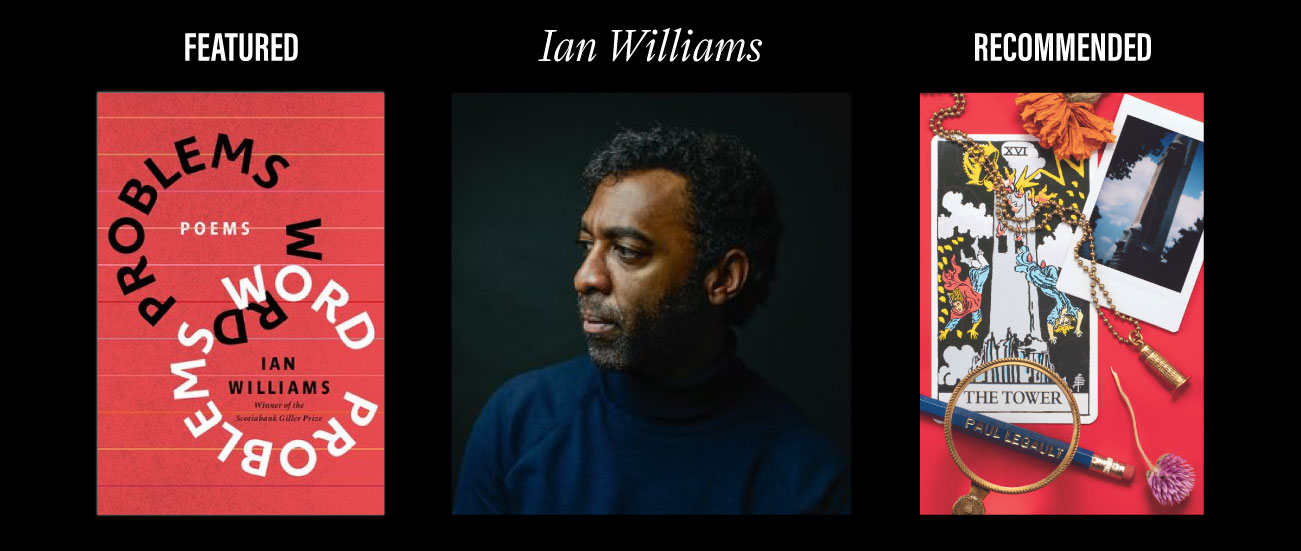
Ian Williams’ Featured Book
Word Problems
From Ian Williams, author of Reproduction, winner of the 2019 Scotiabank Giller Prize and a June 2020 Indie Next Great Read.
Frustrated by how tough the issues of our time are to solve—racial inequality, our pernicious depression, the troubled relationships we have with other people—Ian Williams revisits the seemingly simple questions of grade school for inspiration: if Billy has five nickels and Jane has three dimes, how many Black men will be murdered by police? He finds no satisfaction, realizing that maybe there are no easy answers to ineffable questions.
Williams uses his characteristic inventiveness to find not just new answers but new questions, reconsidering what poetry can be, using math and grammar lessons to shape poems that invite us to participate. Two long poems cut through the text like vibrating bass notes, curiosities circle endlessly, and microaggressions spin into lyric. And all done with a light touch and a joyful sense of humour.
Buy the Book:
Owl’s Nest Books | Shelf Life Books
Ian Williams’ Recommended Book
Paul Legault’s The Tower re-imagines Yeats’s poetry collection of the same title. He maintains the titles, the poem lengths, the sequence, but updates Yeats in a way that would make his head spin. It’s a distinctive, enjoyable, contemporary, smart, ambitious collection.
The Tower by Paul Legault
B. Yeats meets Gregg Araki at a gay bar.
The Tower is a “translation” of W. B. Yeats’s The Tower—an homage and reinvention of the poet’s greatest work. Whereas Yeats’s book contended with his mortality as an aging spiritualist Irish Senator, this version contends with a new mortality: ours.
The poems in this collection crystallize the transition from Legault’s late twenties to his early thirties, situated in North America during a time of political upheaval. It takes each of Yeats’s poems as a starting point and queers them. It translates Yeats’s modernist urge, on the other side of a long century.
In her review of The Tower, Virginia Woolf says Yeats has “never written more exactly and more passionately.” One might imagine she’d conclude the same here. You can’t fault these poems for lacking passion.
Yeats used to talk to ghosts. His wife would let ghosts talk through her. They would talk to Yeats, and he would write down what they say. Another way you could put it is that Yeats talked to his wife. Ghosts are much closer than you think. They like to live in books. So Legault spent some time talking to Yeats’s ghost. Or, Yeats’s ghost talked to him. This is him talking back.
Buy the Book:
